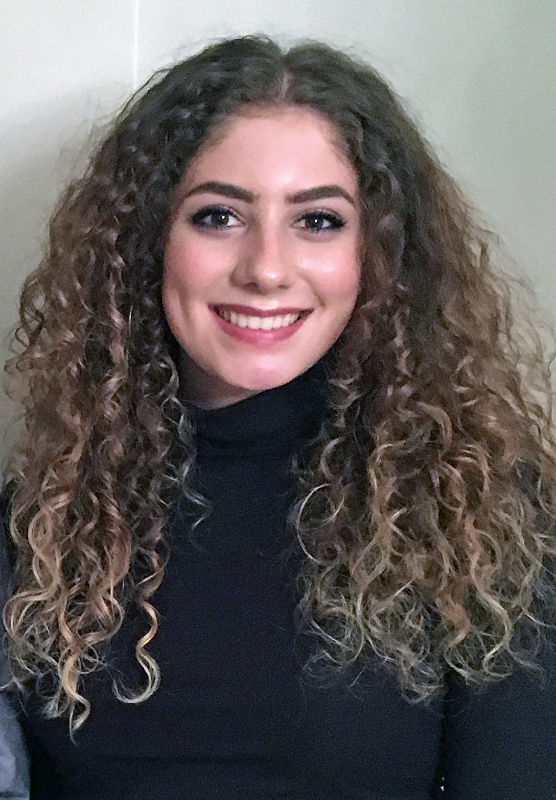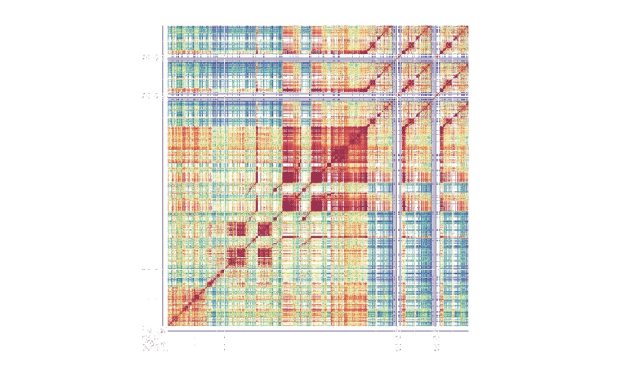Winners announced for first Caius Prizes
- 13 September 2017
- 5 minutes
A diverse and highly original set of essays touching on topics from Welsh-English bilingualism to an analysis of the film Moonlight, via an exploration of communication in rugby, have impressed judges in the inaugural Caius prizes in English and Linguistics.
Launched earlier this year, the English Essay Prize and Linguistics Challenge are annual competitions aimed at students in Year 12, with prize money for the winners and their schools. Each competition carries a first prize of £600, to be split equally between the winning candidate and his or her school or college, and a second prize - also shared - of £400.
The criteria are deliberately innovative and accessible, and the aim is to encourage entries from applicants from any school or home background. For the English competition, entrants were asked to analyse new works from poetry or theatre to films and TV programmes, while the Linguistics award set students the task of exploring a language they use to communicate - interpreted in its widest sense. The first year of entries offered “a remarkable mix of highly original ideas and perspectives, and some sharp and skilful writing”, according to Dr Sarah Houghton-Walker, Caius Admissions Tutor for Arts and Humanities.
“Entrants for the English prize relished the chance to explore the wide possibilities of our criteria, applying academic analysis to a whole range of new works of literature, film and television.” One entry, which earned a Highly Commended from Caius English Fellows Dr Deborah Bowman and Dr Jason Scott-Warren, examined the challenges and possibilities of the historical novel through an account of Elizabeth’s Chadwick’s The Autumn Throne.
Another Highly Commended essay asked how far Bates Motel is a worthy prequel to Hitchcock’s Psycho, while second prize was awarded to Adem Berbic of Watford Grammar School for Boys for “The alt-right, _World Peace_ and you” - an essay praised for its “determination and clarity” and willingness to grapple with moral difficulties.
First prize in the English competition went to Martha Fountain of The Abbey School, Reading, for her essay “There’s more to ‘The Mundane’ than meets the eye”. The judges praised it as “a fluent and engaging essay mingling literary and televisual materials and dealing with them both very intelligently”. They added: “There’s a distinctive voice behind this writing, as well as a nicely-pitched wit, which we enjoyed very much.”
The Linguistics Challenge, judged by Dr Paula Buttery and Dr Andrew Caines, invited students to explore any form of language they use, from musical scores to hashtags and emojis, or even the slang by which they communicate with friends. Here, too, the standard of entries was impressive. “The topics chosen were highly imaginative and demonstrated the great potential of this challenge,” said Dr Houghton-Walker. “This is an unusual competition for the age group as linguistics is not a subject taught in school, but the range and standard of the essays submitted shows how stimulating a linguistic perspective can be. Just as we hoped, the Caius prize has brought out original thought and analysis and shows we can mine a seam of ideas that students might not have a chance to explore elsewhere.”
The judges were so impressed by the Challenge entries that they opted to award a joint first prize and a joint second. One first prize went to Manon Lever of Haberdashers’ Aske’s School for Girls, Elstree, for her essay on “Welsh/English code-switching in my home”. The judges commented: “Your discussion of English-Welsh bilingualism was particularly clearly written and we enjoyed reading about the unique use of code-switching amongst your family.”
 Manon, 17, (pictured right) said she had first been introduced to the idea of code-switching when writing an essay on mutual comprehensibility between different varieties of Arabic as part of her Arabic studies. "I found the topic so fascinating that I decided to investigate code-switching in Welsh, a language very close to my heart. My mother speaks to me almost exclusively in Welsh, and I reply to her almost exclusively in English. In this essay I examined the exceptions to this: why she might speak in English and I might speak in Welsh. I concluded that the primary reason for these switches was the directive function, including or excluding others from the conversation. I found exploring this aspect of linguistics hugely interesting, as linguistics is so rarely touched upon in the classroom, and my enjoyment of the project made my pleasure in jointly winning the Linguistics Challenge all the greater."
Manon, 17, (pictured right) said she had first been introduced to the idea of code-switching when writing an essay on mutual comprehensibility between different varieties of Arabic as part of her Arabic studies. "I found the topic so fascinating that I decided to investigate code-switching in Welsh, a language very close to my heart. My mother speaks to me almost exclusively in Welsh, and I reply to her almost exclusively in English. In this essay I examined the exceptions to this: why she might speak in English and I might speak in Welsh. I concluded that the primary reason for these switches was the directive function, including or excluding others from the conversation. I found exploring this aspect of linguistics hugely interesting, as linguistics is so rarely touched upon in the classroom, and my enjoyment of the project made my pleasure in jointly winning the Linguistics Challenge all the greater."
Emma Tolmie of St. Olave’s Grammar School, Orpington, took the other top award for an essay arrestingly titled “Similarities between DNA and communication in rugby”. The judges thought the analogy between language and DNA in terms of information transfer was particularly innovative, and praised Emma’s insightful comments on message encoding and decoding. Emma, 17, (pictured left) said: “As one of the only people in my Biology class also studying languages, I liked how some of the processes through which DNA expresses itself have been given language-related names (transcription and translation). I wanted to take this idea further and use DNA as an analogy to explore the function of language, using tactics and codes from my rugby team as another example. I thoroughly enjoyed the creative thinking I needed to write this essay, so to find out I'd received joint first place was the perfect way to top it off!”.
One of the two second prizes went to Jamie Slagel of Haberdashers’ Aske’s Boys’ School, Elstree, for his essay “An Experience with Philosophical Language”, focusing on the shortcomings and requirements of natural language for communicating Philosophy. The other, won by Natasha Treagust of Canford School, Wimborne, examined the key properties of language used to communicate with people with learning disabilities in a medical setting.
Other topics tackled by winning or commended entrants included the way the periodic table helps chemists communicate and the linguistics of headlines.
The English Essay prize and Linguistics Challenge will run annually, with a deadline in May. Keep an eye on our website for details of the 2018 competition.


